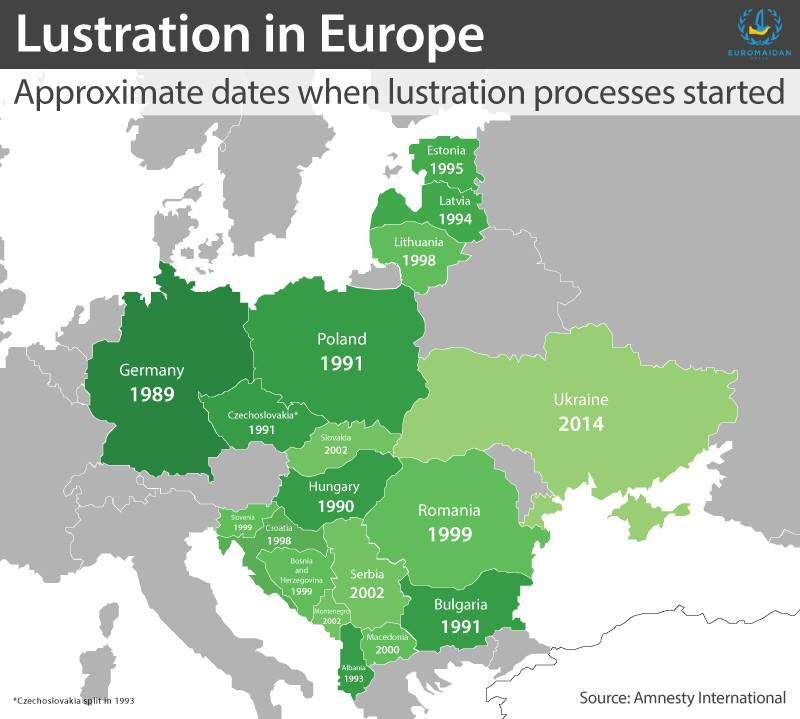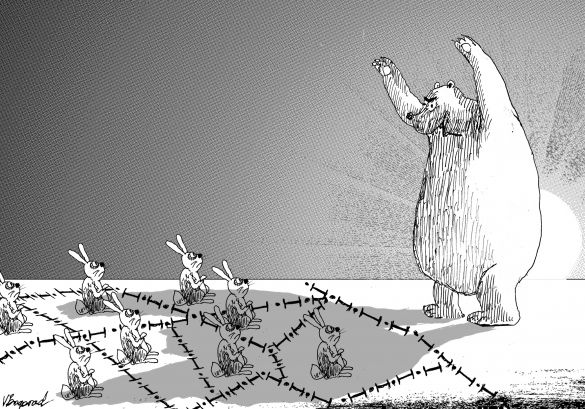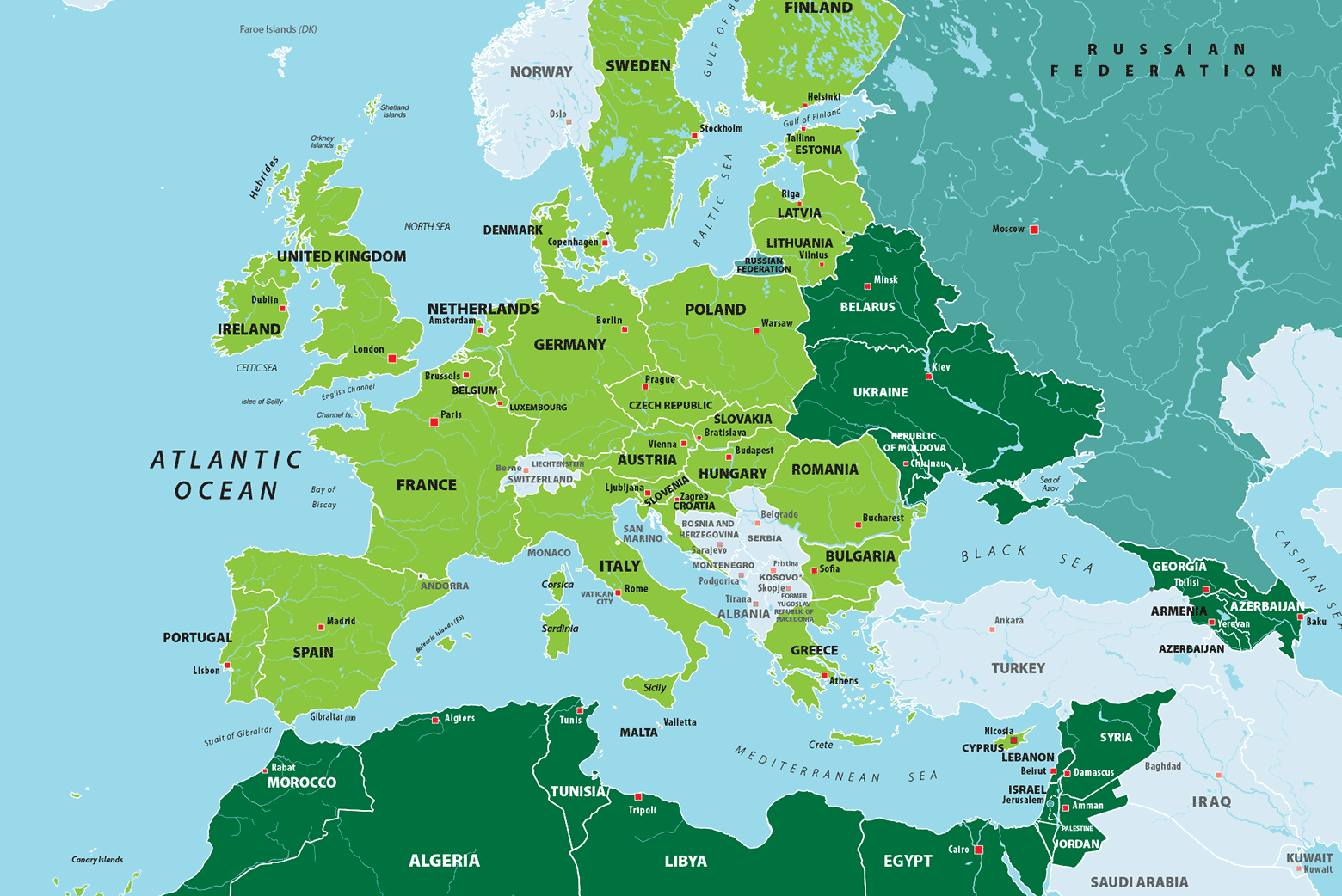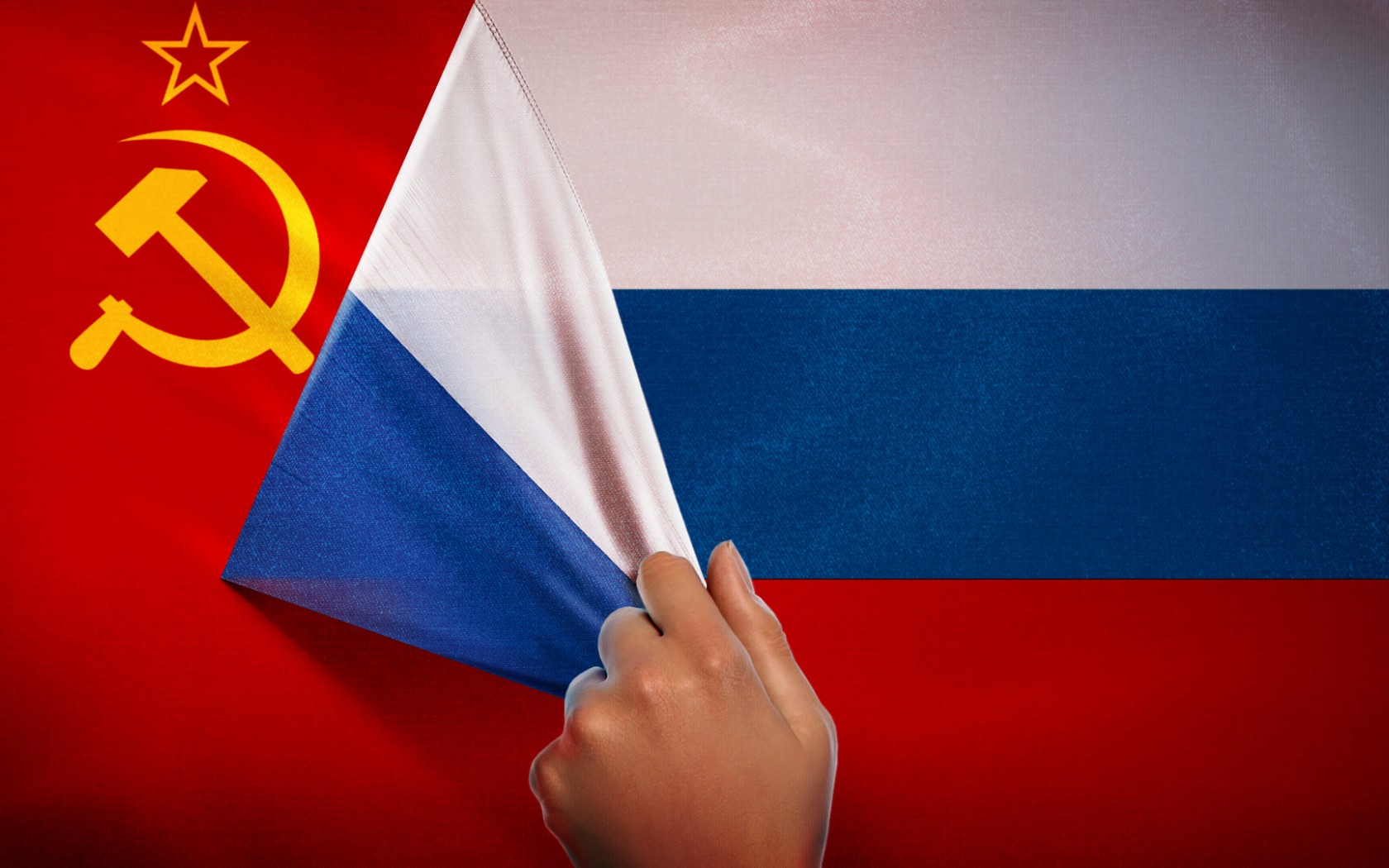Lustration was and is widely carried out in the former Eastern bloc countries. Recently, Finland made its first steps on this path. Mainly being an issue for ex-Communist countries and around the former Soviet sphere of influence in Eastern Europe, lustration processes have mostly been publicly funded. This has not happened in Finland.
In March 2015, the first steps towards lustration in Finland were made with the publication of the book Lustraatio, a collection of articles analysing Finland’s position as Russia’s neighbour and the impact of Russian networks of influence within the country. Now, a group of volunteers has spearheaded the push for lustration in Finland, establishing an association called Lustraatio Ry. for the purpose. Its project Lustraatioarkisto (Lustration Archive) has the goal of creating an online archive concentrating on recent history, Finlandization, and the connections of Finnish public figures, politicians and government officials to the Soviet block intelligence apparatus.

Why the need for lustration in Finland?
1. It will help digest history. Lustration in Finland is a complex issue, the country being a former "grey-zone" country that had a western economic system in the Soviet sphere of influence. After the fall of the USSR, the connections of Finnish officials to Soviet secret services were never investigated, and their role is still unexposed. This issue is all the more urgent today, with consequences that reach far beyond the country.
For instance, in 2015, the American political expert Zbigniew Brzezinski spoke of the need to “transform Ukraine into Finland,” meaning military assistance to Ukraine as well as its “Finlandization” — in other words, the conversion of Ukraine into a neutral state on the borders of Russia and the West. This proposal not only points to a lack of understanding of political legality but is also a refusal to recall history, according to Ukrainian journalist Vitaliy Portnikov. Not only was Finland able to defend its freedom by fighting ruthlessly against the Kremlin and ceding a part of its territory, but its neutrality was a consequence of the Allies not wanting to wage an excessively difficult fight against Hitler on the territory of Karelia. Though socialism was not imposed on Finland, the country was forced to consider the USSR in practically everything up to Gorbachev - when forming a government, electing a president, and in the way the Finnish papers referred to the USSR. Moscow paid for the influence - not only by not invading but also with providing access to cheap wood. Ukraine has already been that kind of country, argues Portnikov and
Though socialism was not imposed on Finland, the country was forced to consider the USSR in practically everything up to Gorbachev - when forming a government, electing a president, and in the way the Finnish papers referred to the USSR. Moscow paid for the influence - not only by not invading but also with providing access to cheap wood. Ukraine has already been that kind of country, argues Portnikov and others, but that didn't stop it from being invaded by Russia.
2. It's a problem of national and international security. After the Cold War ended, Finland did not sort out and investigate the connections and compromising relationships of its political, bureaucratic, economic and military elite with Soviet security services, unlike many East European countries. The result is a secrecy that continues to poison the healing process of Finnish society, and has provided useful tools for the newly ruling KGB regime in Russia, which is known to have returned to use KGB instruments of influence to manipulate decision and opinion-makers in Finland and other European countries, writes the editor of the Barking Blase blog.

Kerkko Paananen, translator and journalist specialized in Russia, considers this to be of extreme importance nowadays, asserting that Russia is waging information war in Finland like elsewhere in Europe, with the plan of turning Finland into Moscow’s "Trojan Horse" within the European Union. This thought is shared also by Alpo Rusi, a Finnish diplomat and former advisor to the Finnish President, in his book Sphere of Influence - Power Game of Finland for Survival on the Border of Europe from 1700 to 2014 (informal translation):
"In relation to EU member states, Russia employs a divide and rule tactic, which is also targeted at Finland — a country located on the EU-Russia border. When looking for culprits for the crisis in Ukraine, criticism in Finland was directed at the EU in the beginning of August 2014. Finnish politicians were unhappy about the EU sanctions against Russia."
The background of "Finlandization"
The term means a political process by which a stronger state exerts a strong influence on the policies of a weaker neighbouring country, while the weaker country maintains its own political and economic system. The term was used to describe Finland’s international status during the Cold War. Although Finland and the Soviet Union had signed an Agreement of Friendship, Cooperation, and Mutual Assistance, Finland was economically part of the western world.

By fighting against Soviet aggression in the Second World War, Finland managed to avoid occupation but was forced to cede a large part of its territory, including its second-largest city, Vyborg, in a peace treaty with the Soviet Union. Moscow went on to have a significant and corruptive influence on Finnish foreign and domestic policies throughout the Cold War period. Many Finnish politicians found it easy to collaborate with the Soviets to further their own careers. Furthermore, Finlandization manifested itself as self-censorship and openly pro-Soviet attitudes, particularly in the media and cultural life, writes Kerkko Paananen.
"In the Soviet era, Finland was the Soviet Union’s window dressing, a country that could be used to prove that the Soviet Union was capable of living in peaceful coexistence with its independent neighbor. In actuality, Moscow’s approval was required for Finnish schoolbooks and Moscow also had a say which books were available generally,"
Finnish-Estonian writer Sofi Oksanen notes on upnorth.eu. One example of this is the books that were available in Finnish libraries, the information that was available, and the information that people dared to seek out. On the same platform, Pekka Virkki writes that the USSR also penetrated Finnish life by increasing control of the Finnish government using internal political struggles to increase its own influence - a strategy that still continues in Ukraine today. The mechanisms for achieving this were various, but perhaps most notorious was the active intelligence and espionage that the KGB exercised in Finland, with the twofold aims of either damaging the reputation of politicians who were critical of the Soviet Union, of politically influencing the regime to keep it under control in the long term.
Collaboration with the KGB during the Cold War

Lustraatioarkisto has already started collecting examples of the Soviet penetration of Finnish politics. A central figure is the Soviet Lieutenant General Viktor Vladimirov, who had been head of the “wet operations” (assassination) section of the Soviet secret police, the KGB. He did several rounds as a diplomat at the Soviet Embassy in Helsinki, managing to befriend more than one Finnish president and scores of leading politicians and opinion makers. Many members of the Finnish political elite courted his favour. During the autumn of 1981, Vladimirov met his friend Mauno Koivisto every week, who in the following year would become President.
However, also the prime minister Kalevi Sorsa was powerful. According to the so-called Mitrokhin files, a collection of handwritten notes made secretly by KGB archivist Vasili Mitrokhin, the KGB offered him "political and moral support." As Alpo Rusi writes in the aforementioned book,
"The Communist Party of the Societ Union (CPSU) regarded Sorsa as a person "who did a lot of good for us," as Boris Ponomaryov, Secretary of the CPSU Central Committee, told the East German party leader, Erich Honecker, in Berlin on 26 January 1979. Sorsa had a special relationship with the CPSU leadership. The invasion of Afghanistan did not reduce the value of his shares — quite the contrary, in fact."
Finland's later president, Tarja Halonen, and Seppo Nevala, former head of the Finnish Security Police (Supo), previously worked as secretaries to Kalevi Sorsa. Also, the Finnish security police lost its integrity during the Cold War. Information obtained from the so-called Mitrokhin Archive suggests that the KGB offered money to the former head of the Finnish security police (Supo) in exchange for his cooperation. According to documents, Pentti was named as an agent during March 1973. The KGB regarded the first visit of Pentti’s successor, Tiitinen, to Moscow as an even better success than the visits by his predecessor. Following his career as head of Supo, Tiitinen became the Parliamentary Secretary of the Finnish Parliament.
The long time Foreign Minister Erkki Tuomioja (left wing social democrat) had explained his friendship with a KGB Officer Sergej Marejev in the 1970s-1980s, and the way he continued to work with him in the 1990s, in his published diaries.
Tuomioja leaked the Soviet opposition of the Free Trade Agreement with EEE in 1972 based on a top secret memo on talks between Finnish President Urho Kekkonen and USSR General Secretary Leonid Brezhnev in Zavidovo to several newspapers, causing a political crisis in Finland. Tuomioja confessed the leak in September 1993.
There have been several cases within Finland’s political and academic elite that would certainly warrant further investigation. In a small country like Finland, the emergence of networks of protection, as well as of political, personal, and sexual relations, is commonplace inside the political elite. These networks and connections serve as an environment for dubious intelligence activities.
For instance, the Finnish Professor Timo Kivimäki, who was convicted of spying on behalf of Russia in Denmark in 2012, was hired soon after his conviction by Helsinki University. Riitta Juntunen, who was revealed to have spied for East Germany’s notorious secret police, the Stasi, got a promotion at the trade union organization she was working for. Tiitinen retired from the post at the end of 2015.
Lustration or no lustration? What happened after the Cold War
According to Jukka Mallinen, an author of the book Lustraatio, after the collapse of the Eastern Bloc, the elites in some of the former members of the bloc changed radically, managing their transition to democracy and market economy quite well, while in others, the old power structures remained in place, having assumed new names. These countries are stagnant pseudodemocracies at best.Finland missed the process of lustration that should have been done after the end of the Cold War.
The Finnish elite retained its confidence in the relationship with the Soviet Union until the bitter end. Alpo Rusi tells how that came about in Sphere of Influence...
"A couple of months after the fall of the Berlin Wall in winter 1990, Supo was contacted by a representative of the West German intelligence service, BND. Supo's representative received a list of about twenty Finns who had worked as collaborators of the Helsinki station of the East German secret police, the Stasi.
The Finnish government discussed the list on a general level. Under new rules, issues related to Supo were now discussed at a special committee that, besides the Prime Minister, included Foreign Minister Pertti Paasio (SDP), Justice Minister Tarja Halonen (SDP), and Interior Minister Jarmo Rantanen (SDP). They had all been either official or unofficial contacts of the East German Embassy in the 1980s.
Tiitinen and the President agreed that there would be no investigation of the persons on the list, but that it would be kept in a safe. Tiitinen stated that the 'dungheap would not get any better by turning it.'
This gave immunity from prosecution to at least Kalevi Sorsa, provided that the information about the list was correct. Later, when the 'Tiitinen List' led to a scandal in autumn 2002, Sorsa gave a peculiar interview to the regional daily, Pohjalainen. He was surprised at the reports that he would be on the secret Stasi list: 'I have never known anyone at the East German Embassy.'
In fact, Sorsa bore false witness in the interview: He had contacted the East German Embassy as early as 19 November 1969, when he was still party secretary, and met with East German diplomats regularly up until 1989-1990."
KGB Defector Anatoliy Golitsyn (suspected to be a victim of an assassination attempt convicted by Viktor Vladimirov), who worked in the USSR embassy in Helsinki in the 1960's, wrote in his book The Perestroika Deception (1995):
"The [Soviet] strategists are concealing the secret coordination that exists and will continue between Moscow and the 'nationalist' leaders of [the] 'independent' republics." [...]
"The power of the KGB remains as great as ever... Talk of cosmetic changes in the KGB and its supervision is deliberately publicized to support the myth of 'democratization' of the Soviet political system." [...]
"Scratch these new, instant Soviet 'democrats,' 'anti-Communists,' and 'nationalists' who have sprouted out of nowhere, and underneath will be found secret Party members or KGB agents."
Is there any reason to believe that strongly KGB-penetrated Finland would differ from the former Soviet republics what comes to such "coordination"?
However, no attention has been paid to lustration in Finland, "because the atmosphere of Finlandization wasn’t quite an occupation but more like a political high-wire act in uncertain terrain where roles were unclear, Finland didn’t make a conscious effort to eliminate Finlandization nor did it make a clean break after the collapse of the Soviet Union," writes Sofi Oksanen. In result, Finland missed the process of lustration that should have been done after the end of the Cold War.

The reactions to the book Lustraatio (2015) suggest that this might have been a mistake from the viewpoint of national security. As noted by the Barking Blase blog, Russian researcher Professor T. Vihavainen responded to it "in a critique soaked in insinuations and allusions," while head of the Finnish National Archive Dr. J. Nuorteva attacked one of the book authors' archive research, arguing that a Finnish researcher studying in the Soviet archives that were opened in Ukraine as part of the decommunization process initiated in 2014 would lose access to archives of the Russian FSB, the successor to the KGB. "If anything, such reactions indicate something of the nature of what is wrong in the Finnish atmosphere concerning any opening up of the era of Finlandization," notes the author of the blog.
A few weeks after this, Dr. Nuorteva received the Order of Friendship, a state decoration of the Russian Federation established to reward foreign nationals whose work, deeds, and efforts were aimed at the betterment of relations with the Russian Federation. Back in 2007, Nord Stream lobbyist and former Finnish prime minister Paavo Lipponen also received the medal. During the same year, he wrote an aggressive article strongly attacking those who demanded disclosure and investigation of Stasi documents concerning Finnish politicians.
Another former prime minister, Esko Aho, was recently nominated to Russia's Sberbank board of directors. His contacts with KGB go as far as 1970's when Jaakko Laakso - Finnish communist - probably introduced him to his own contact, Anatoly Vasin. Jaakko Laakso from Left Alliance was the leading voice in the campaign to prevent or ridicule any discussion about the Finnish NATO membership. Laakso was recruited by KGB Helsinki Residentura in 1973 with the code name 'Jan' as a 'trusted contact' but handed over to another Residentura in 1976, Alpo Rusi reports, referring to the Mitrokhin archives.
The threats today and how to react
Today the aim of the Russian “intelligence diplomats” – i.e., spies – is to pressure Finnish politicians
- (1) not to encourage any kind of positive debate on NATO membership
- (2) not to criticize Russia harshly on Human Rights violations
- (3) to develop economic ties
- (4) to strengthen bilateral relations with Finland at the expense of the credibility of Finland inside the EU.
Disclosing archival items offers a great opportunity. International cooperation between the archives, NGOs, and officials could play an important role in researching and spreading the information. Who knows whether the same Russian "sleeping agents” are acting in Finland, Estonia or Sweden?
"The head of the presidential administration Sergey Ivanov was the youngest General in KGB and served in Helsinki between 1985 and 1993, and earlier in Kenya, Sweden and perhaps Great Britain. He must be fully informed about KGB’s and FSB’s as well as GRU’s Finnish operative contacts as well as sleeping agents working in Finland," writes Alpo Rusi.
And this issue is by far not only relevant to northern Europe. In a piece on Open Democracy, Péter Krekó and Lóránt Győri from the Political Capital Institute, a think-tank based in Budapest, Hungary, call for more integrated intelligence services in the EU in order to reveal the connections of the European left to the Kremlin, acknowledging that the old “comrade networks”, established during Soviet times by the KGB, are still alive.
At least there is one international initiative concentrating on kleptocratic practices, as the article published in Foreign Policy Magazine shows - the Kleptocracy Archive, a catalog which currently profiles nearly 100 "individuals of interest" from Russia and Ukraine, based on more than 100,000 pages of supporting evidence of 3,000 documents. Run by the Kleptocracy Initiative, the project stresses that autocratic regimes, politically structured as kleptocracies, are a growing threat to Western democracies as corrupt rulers carry their values and practices into the heart of Western institutions.
Finnish activists are searching for documents related to lustration issues
Creating an archive is the first step to tackling the problem. Thus, Lustraatioarkisto accepts any materials fitting to the purpose of the archive such as official documents, other texts, pictures, recordings, videos. Private memoirs are also accepted. All donors are welcome including foreign diplomats, journalists, politicians, and expatriate Finns.
- Address: Lustraatioarkisto, Jalavatie 4 A 10, 00270, HELSINKI
- Email: [email protected]
- https://lustraatio.fi/finland-is-heading-towards-lustration-process/
- Facebook: https://www.facebook.com/lustraatio/ (Finnish), https://www.facebook.com/finlustration/ (English)
[hr]About the authors: Pekka Virkki is a journalist and publisher of the book Lustraatio (2015). Alya Shandra is an editor at euromaidanpress.com.





